3/27/24 – Change & Intersectionality
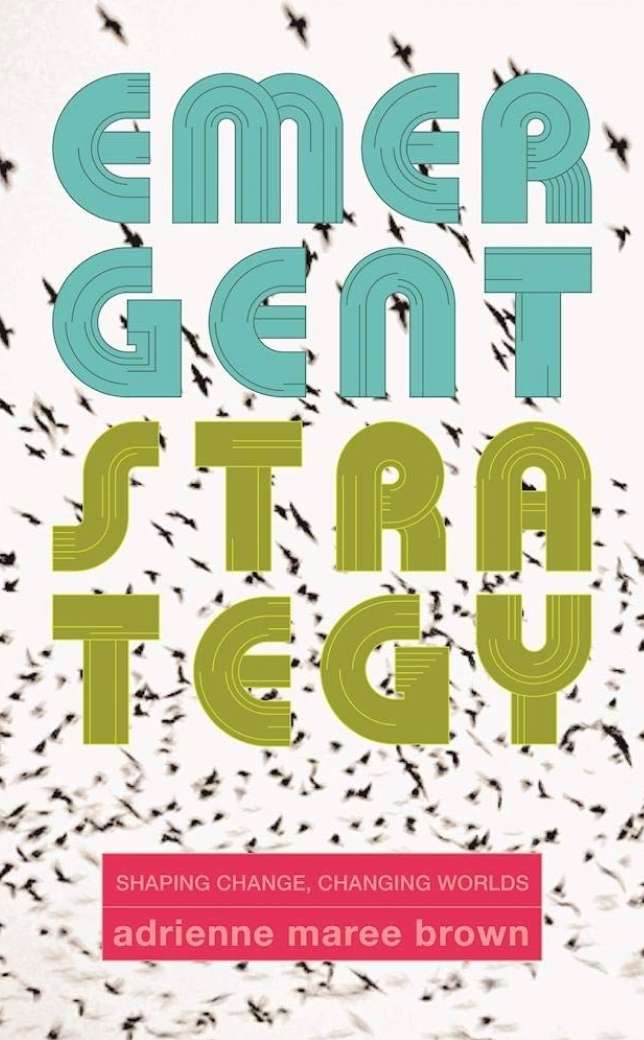
"Emergent Strategy: Shaping Change, Changing Worlds" by Adrienne Maree Brown
In this book, Adrienne Maree Brown uses elements found in nature to convey ideas like resilience, interconnectedness, and change. The author mentions how “change is constant.” The world is always changing around us and we must be flexible and adapt to these changes.
Adrienne Maree Brown also quotes Octavia Butler: “All that you touch you change. All that you change changes you.” Brown says this to emphasize how interconnected we are with each other and the systems around us. We have an ability to make an impact through our intentional actions.
“Transform yourself to transform the world.” Brown encourages people to deeply connect with others and build meaningful relationships that then translate to better work, communication, and collaboration. First, we much look inward and do the work to improve ourselves in order to have more fruitful interactions with other and change the world.
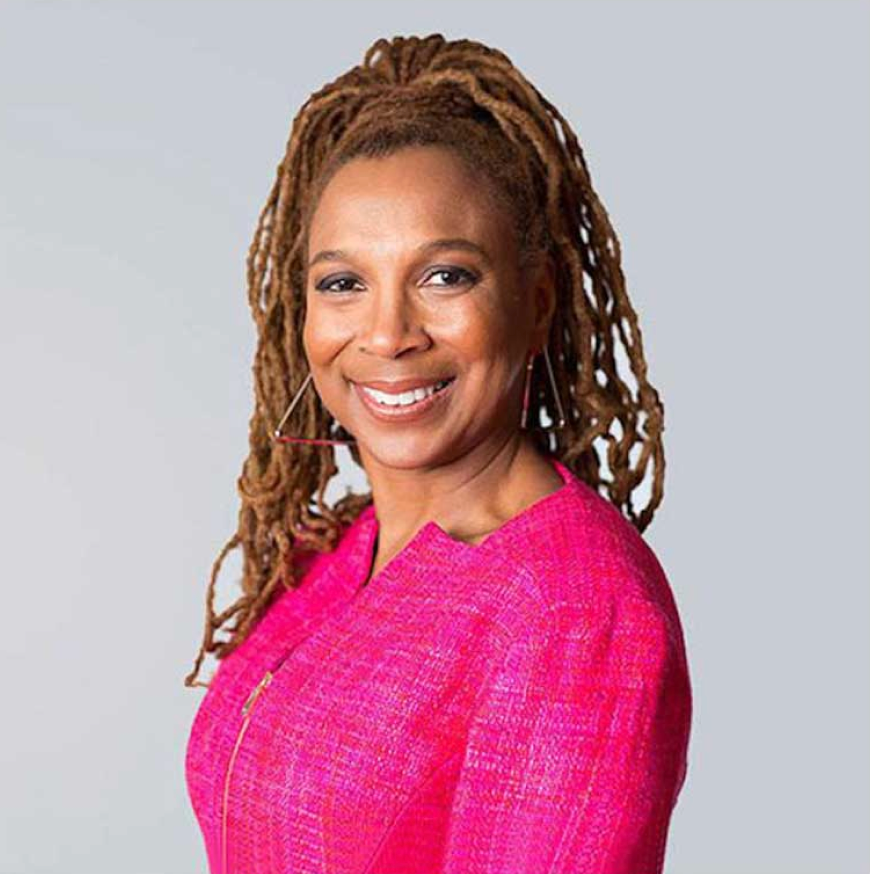
“The urgency of intersectionality” by Kimberlé Crenshaw
“Intersectionality” coined by Kimberlé Crenshaw is a framework that describes how people’s multiple identities intersect to form unique ways of experiencing discrimination and privilege. Intersectionality recognizes the multidimensionality of all people. In this TED Talk, Kimberlé Crenshaw demonstrates how the lack of an intersectional viewpoint in our societal systems leaves certain people and identities less represented which causes injustice.
Crenshaw illustrates how traditional systems often fail to address the unique experiences of individuals who belong at the intersection of multiple marginalized groups.
Intersectionality is crucial in achieving meaningful social change and justice for all.
Check out the YouTube video below that explains more about intersectionality.
3/13/24 – Building Empathy with Jamil Zaki
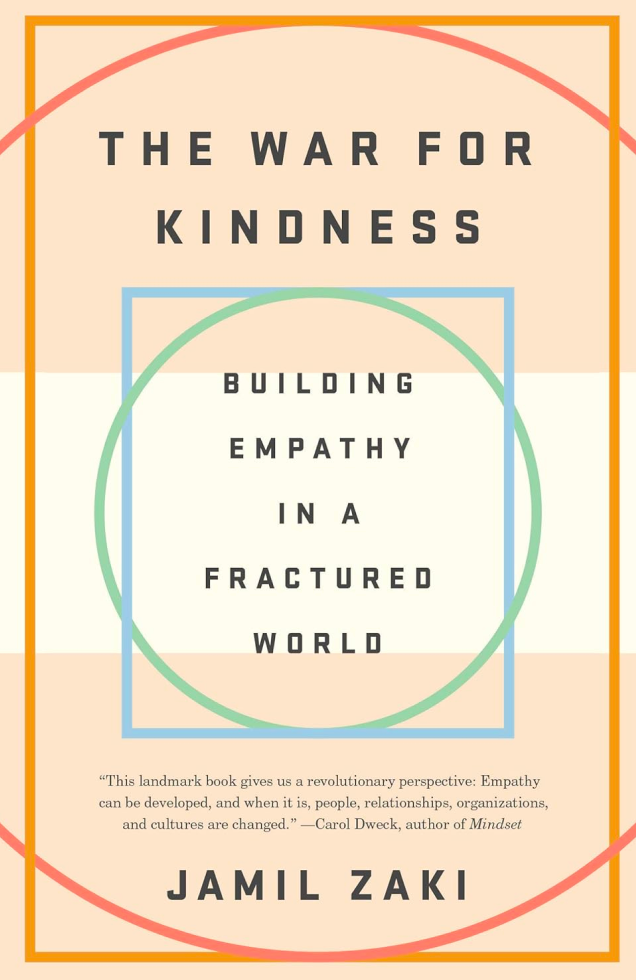
“The War for Kindness: Building Empathy in a Fractured World” by Jamil Zaki
Empathy is in short supply and we need more of it. Jamil Zaki, professor of psychology at Stanford University and the director of the Stanford Social Neuroscience Lab, explains the benefits of empathy and how we can all contribute to creating more empathy in the world.
Zaki begins with sharing the story of his parents and their divorce and how that put him in an environment to practice empathy for both parents.
He calls the belief that empathy is determined by genetics the “Roddenberry Hypothesis” (from Star Trek). He counters this by arguing that empathy can be developed and “we choose to use or avoid it depending on whether it seems useful.”
Building empathy requires meeting people where they are. “Hatred buries empathy but does not kill it.” No matter our past, we have the power to redefine ourselves and choose empathy going forward. Throughout the book, Zaki shares research and stories of people who demonstrate this idea.
Check out Jamil Zaki’s Kindness Challenges (Empathy Gym) on the website link below.
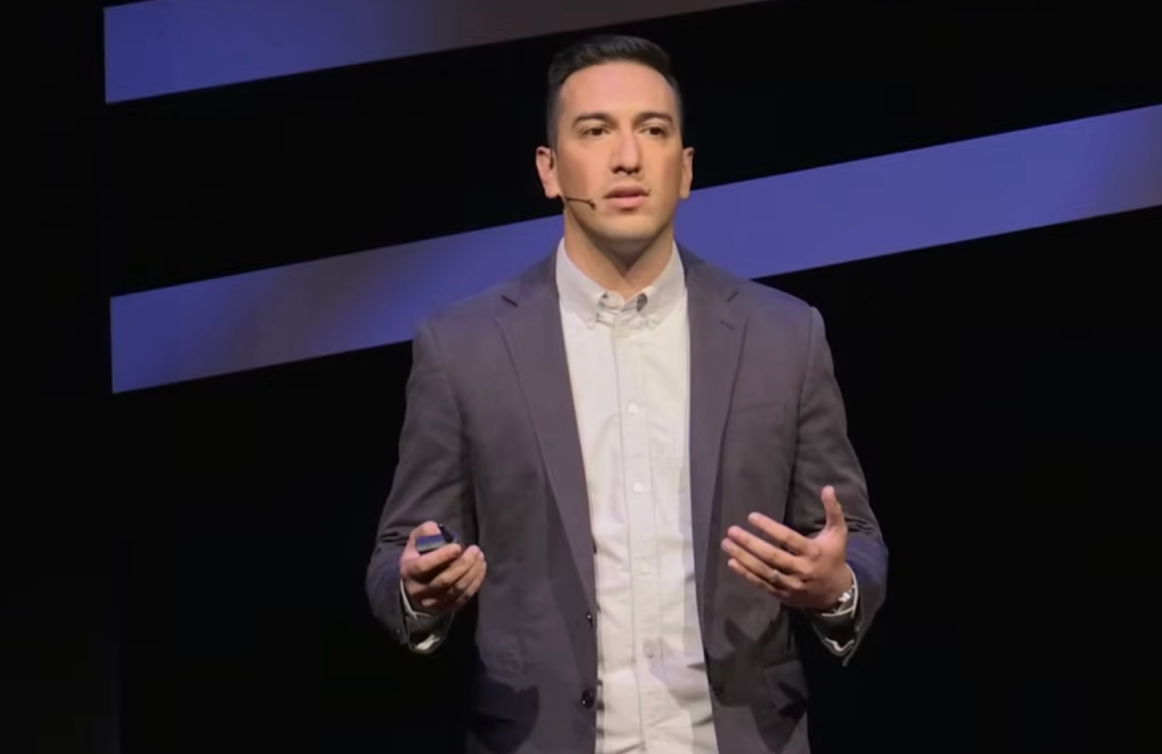
“We’re experiencing an empathy shortage, but we can fix it together” by Jamil Zaki
In this TED Talk, Jamil Zaki emphasizes that empathy is not a fixed trait but a skill that can be strengthened through intentional practice. It’s a choice that we are met with thousands of times a day. When we choose to exercise empathy, we choose to not only treat others with more kindness and understanding, but we also grow ourselves. Zaki states through research how people who are told that empathy as a skill are more motivated to work on exercising it. Practicing empathy creates empathetic habits which creates empathetic people. Zaki also gives examples of people who have changed their lives and now demonstrate empathy in their values and work, which assures how we as humans are always growing and forming. Empathy is malleable. Zaki ends his talk by stating, “Empathy is not just a precious resource it’s also a renewable one.” How will you lead your life knowing that empathy is your choice?
2/14/24 – Building Relationships Through Listening
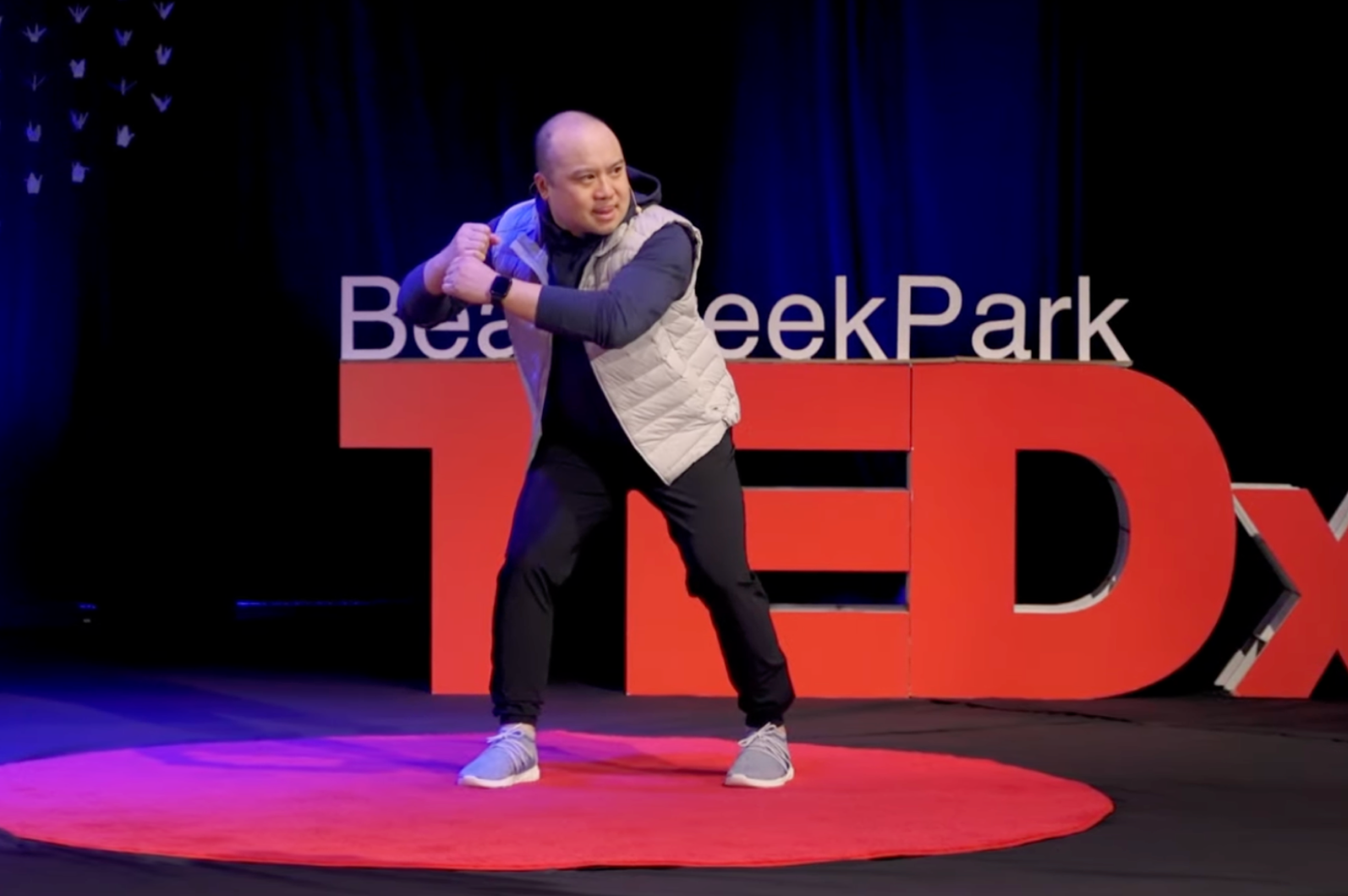
“Building Community Through Listening” by Johnny Trinh
Johnny Trinh, an artist and poet, speaks about his time as an artist-in-residence at Connective (previously called John Howard Society ) in partnership with the Community Arts Council of Vancouver (CACV). In his work, he goes into communities and helps them create art by listening to their stories with the purpose of “building bridges between communities”.
Trinh mentions how although you can’t give someone a voice, you can create a platform for them to speak and for others to listen. When we listen to each other, we heal each other.
Trinh shares his poem inspired by the stories he heard at the John Howard Society, “Bottom of the Ninth”.
He concludes, “Community is so much more than a local geography or common identity or shared values. Community is a place where our stories intersect. Sometimes they collide, but sometimes they merge. This is our opportunity to listen...Winning isn’t about one team doing better than another team, winning is about learning to play together.”
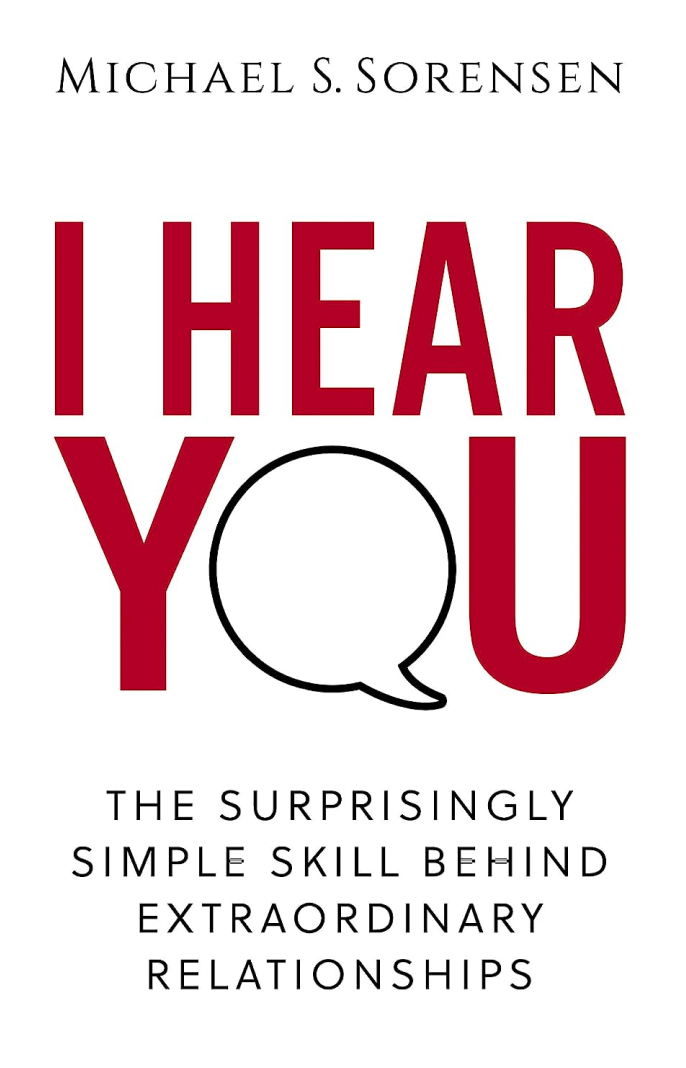
“I Hear You: The Surprisingly Simple Skill Behind Extraordinary Relationships” by Michael S. Sorensen
In this book, Sorensen, business executive and creator, shares the power of validation in forming stronger relationships.
People want to feel validated and like they belong. Empathy is the core of validation. We go about our days not knowing what other people are going through or how it is affecting their lives. A little empathy goes a long way in developing personal connections with others.
Validation has two key components: identifying an emotion and offering justification for feeling that emotion.
4 Steps to Validation:
1. Listen Empathically. Listen to understand not to respond. Don’t interrupt or judge the person who is speaking.
2. Validate the Emotion. Acknowledge their emotions and offer justification.
3. Offer Advice or Encouragement (if appropriate). Ask whether the person is seeking advice or if they simply want someone to listen. If you do give advice, use “I” statements.
4. Validate the Emotion Again. Additionally, validate their vulnerability for sharing.
To hear Michael Sorensen talk about the book, visit the YouTube link below.
1/31/24 – Confronting the uncomfortable (being an ally and the first domino to fall)
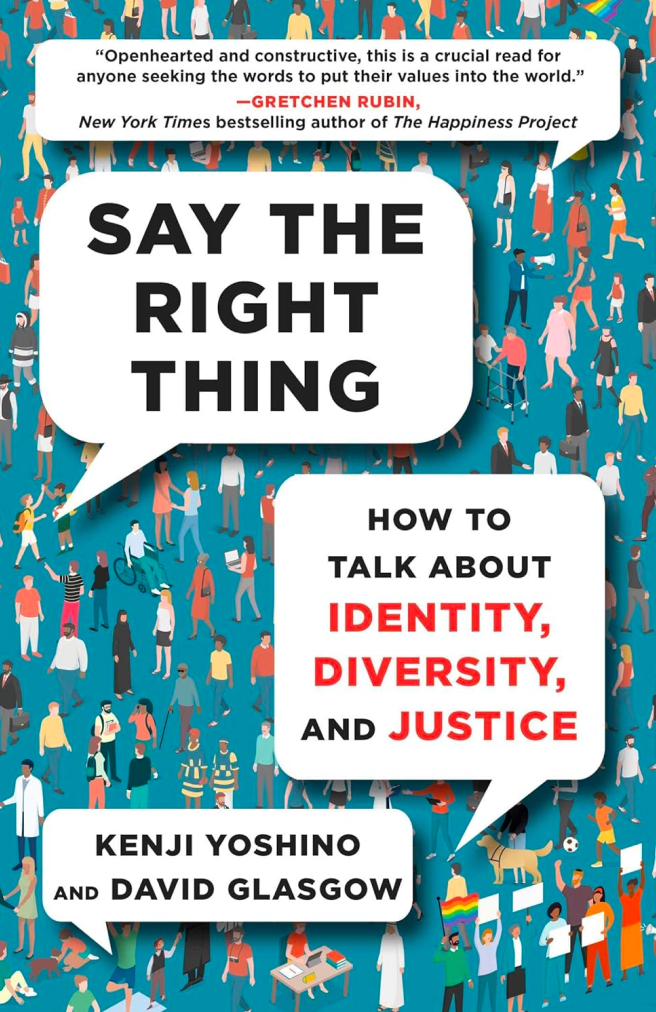
“Say the Right Thing: How to Talk About Identity, Diversity, and Justice” by Kenji Yoshino and David Glasgow
In this book, Kenji Yoshino and David Glasgow (founders of the Meltzer Center for Diversity, Inclusion, and Belonging at NYU School of Law) provide a guide with practical tools on how to be an ally. The authors recognize that there is not a lack of desire to be an ally, but there is lack of tools and understanding how to use them effectively. Sometimes we don’t know what to say or how to say something because we are concerned about how it might be received or make someone feel. In this effort to understand, uplift, and be an ally, we will inevitably make mistakes. Yoshino and Glasgow believe that the key to growing through these mistakes is by having both accountability and compassion for yourself. Whether it’s at work, at school, or a family gathering, this book offers clear guidance on how to engage in these challenging conversations.
To listen to the authors discuss the book, please visit the YouTube link below.
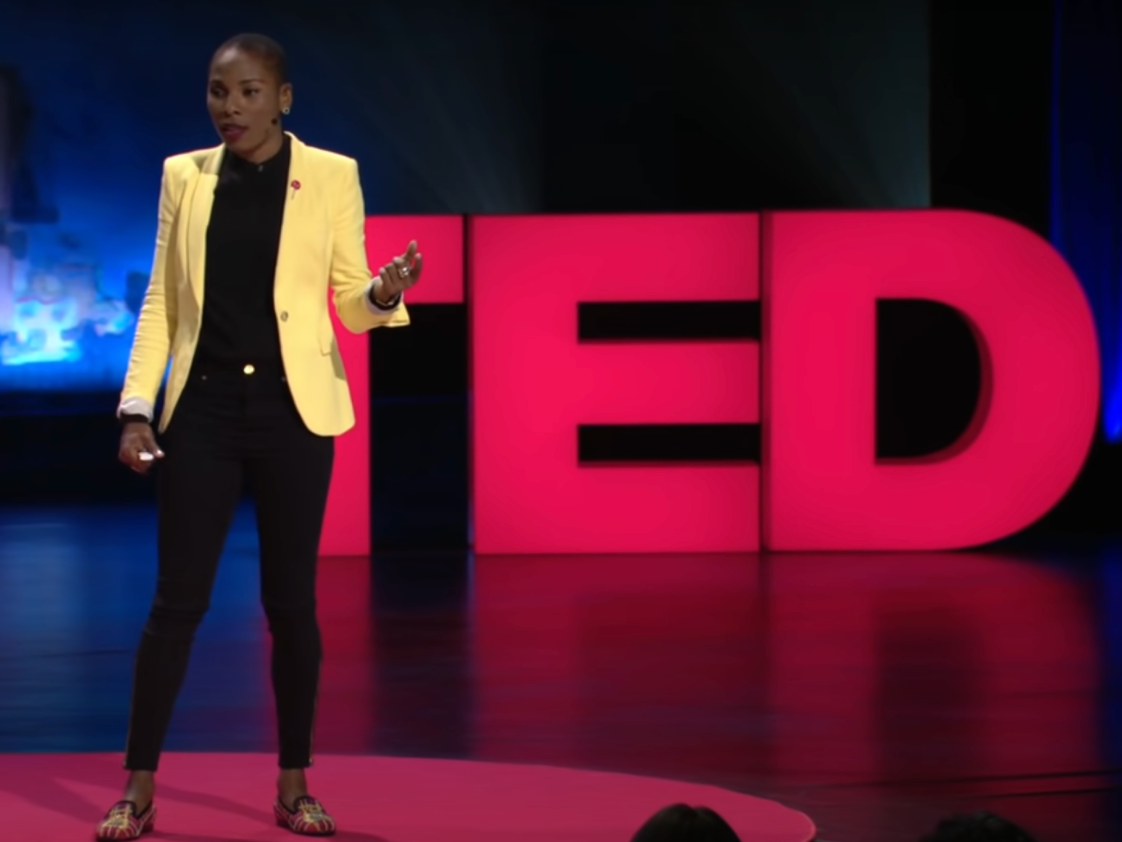
“Get comfortable with being uncomfortable” by Luvvie Ajayi Jones
It’s natural to want to avoid uncomfortable situations and conversations. In her TED Talk, "Get Comfortable with Being Uncomfortable," Luvvie Ajayi Jones states how her purpose is to effect change by “speaking up, by being the first, by being the domino.” By being the first domino to fall, she paves the way to inspires others to make a choice and follow in creating positive change.
Jones recognized that being the domino does not come without fear of consequences, but there are too few people willing to be the domino that we must speak up despite the fear. She shares how she pushed herself to do things that made her scared or uncomfortable by follow the principle, “Do it anyways.” With this in mind, she took her first solo-trip where she also zip-lined, wrote her book “I'm Judging You: The Do-Better Manual," and skydived. Jones compares staying on the plane before jumping out to being comfortable and staying quiet. Staying comfortable only maintains the status quo and “silence serves no one."
She urges, “We've got to get comfortable with being uncomfortable by speaking these hard truths when they're necessary.” Jones ends the talk with “It is our job, it is our obligation, it is our duty to speak truth to power, to be the domino, not just when it's difficult - especially when it's difficult.”
1/17/24 – The power of your identity
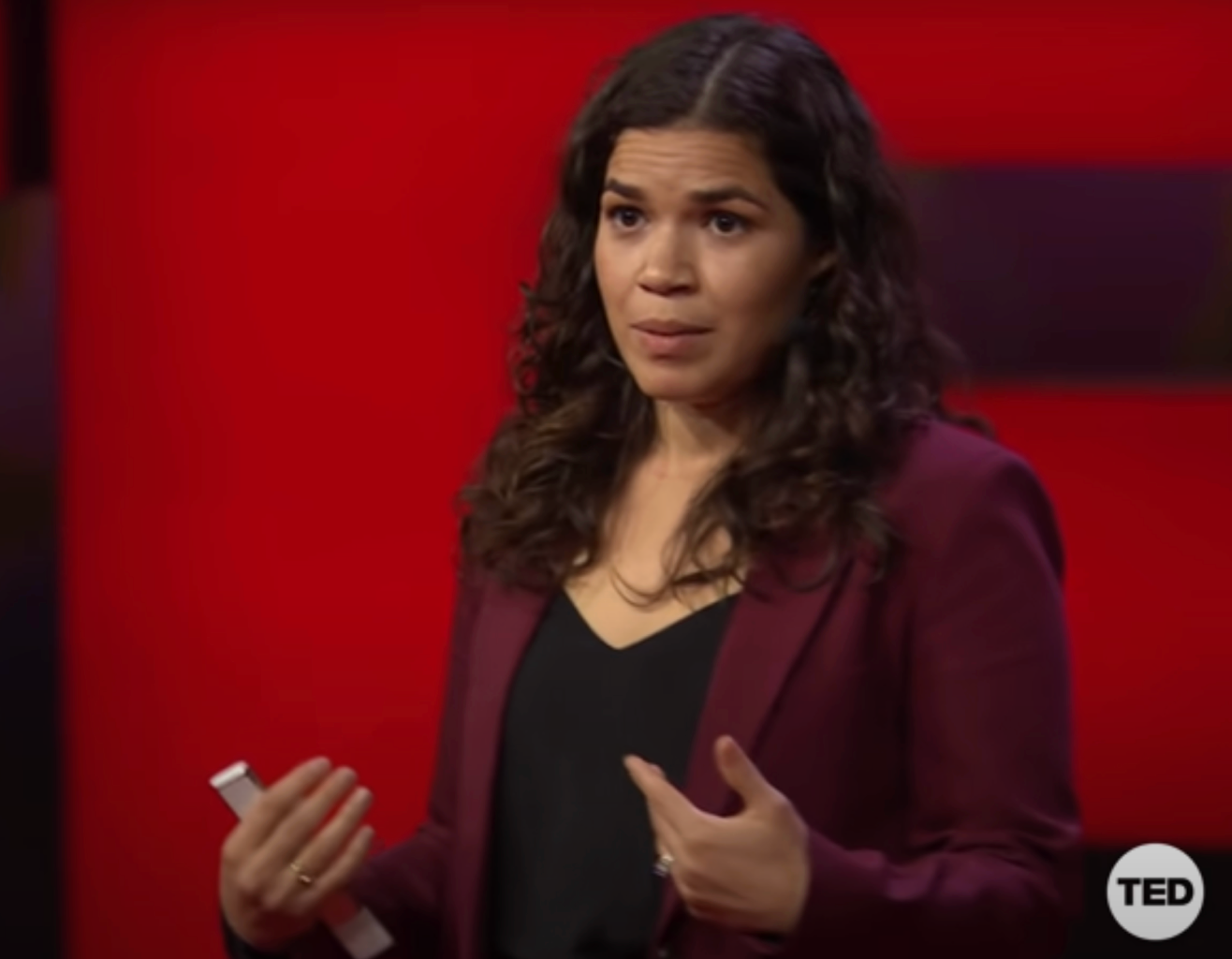
“Your Identity is Your Superpower” by America Ferrera
America Ferrera (actress from Ugly Betty and Barbie) details how in her journey of auditioning, she was constantly put in a box. She’s shares an anecdote about how she was asked, “Could you do that again but this just time sound more Latina?” The casting director’s vision of someone who spoke in broken English trumped America Ferrera’s real-life authentic experience as a Latina.
America Ferrera realized that she could not change a system if she were to comply to those stereotypical beliefs. “Change will come when each of us has the courage to question our own fundamental values and beliefs and then see to it that our actions lead to our best intentions.” It takes inward reflection on our identity and values to know what we want to stand for.
America proudly says, “My identity is not my obstacle. My identity is my superpower.” We can exist authentically as who we are and live our dreams without conforming to the ideas that others have formed about us.
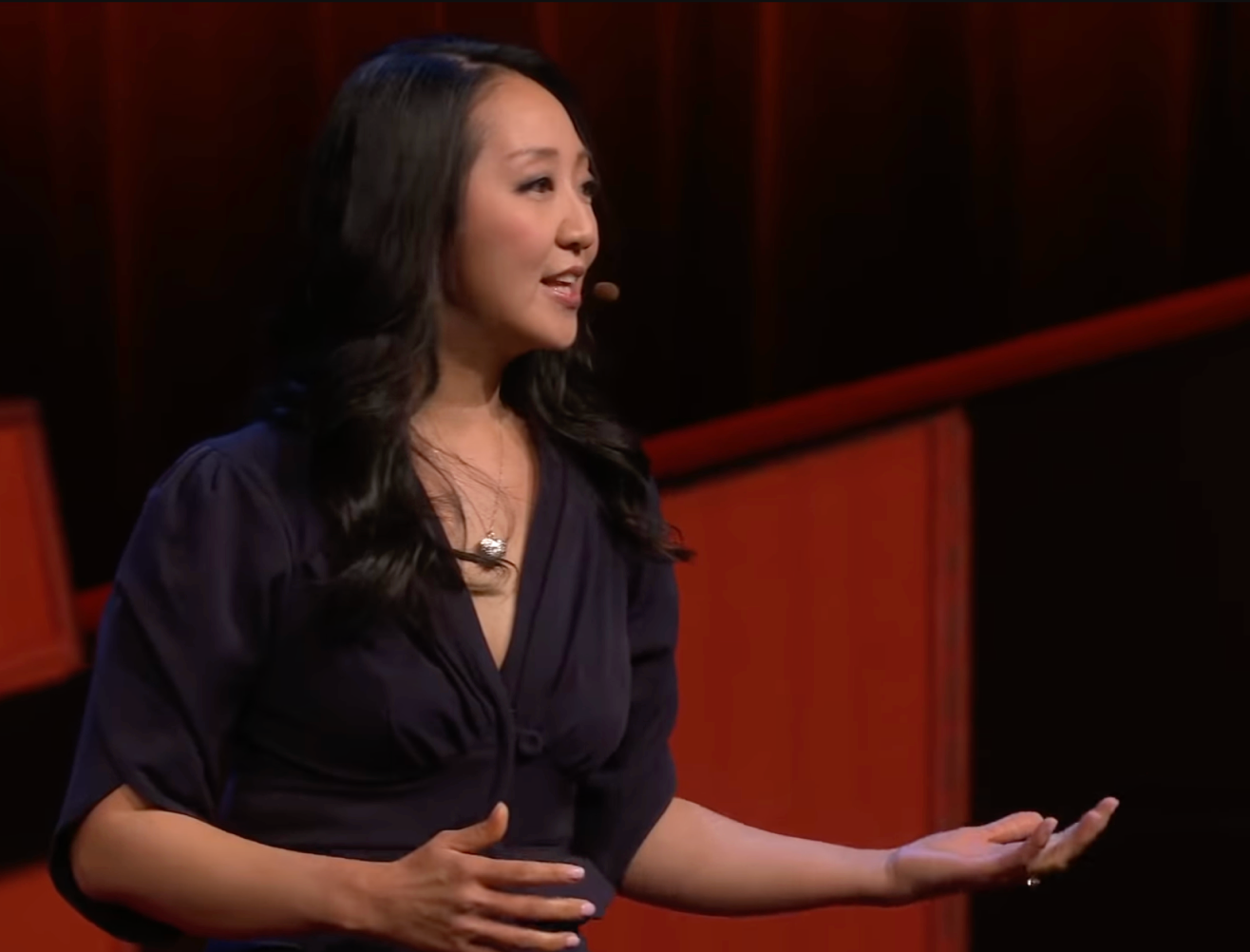
“The Power of Diversity Within Yourself” by Rebeca Hwang
In this podcast Rebeca Hwang (social entrepreneur and venture capital investor) shares stories that highlight the multiplicity of her background, being born in Korea, raised in Argentina, and then studying in the US.
Hwang turned her unique identity into a strength when she began embracing all of the different versions of herself, “even allowing [herself] to reinvent [herself] at times.”
“Now, today my identity quest is no longer to find my tribe. It's more about allowing myself to embrace all of the possible permutations of myself and cultivating diversity within me and not just around me.” In order to lead and create diverse and inclusive organizations, we must recognize the diversity of our own identities and experiences and how that can guide us in creating space for others. I leave with the question, “How can we use what makes us unique to better understand and connect with others?”
11/29/23 – Unconscious Bias
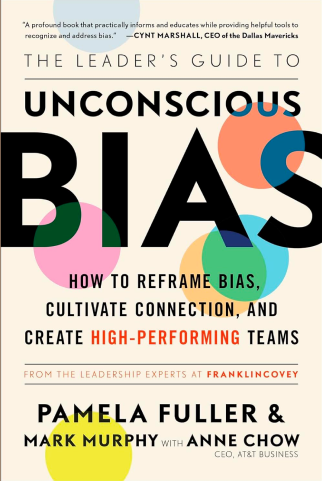
The Leader's Guide to Unconscious Bias: How To Reframe Bias, Cultivate Connection, and Create High-Performing Teams by Pamela Fuller and Mark Murphy with Anne Chow
"The Leader's Guide to Unconscious Bias" by Pamela Fuller is a comprehensive resource offering leaders practical strategies to navigate and mitigate unconscious bias in the workplace. Fuller explores the impact of bias on leadership effectiveness and team dynamics, emphasizing the importance of self-awareness and reframing biases. The book provides tools for creating inclusive environments, cultivating authentic connections, and leveraging diversity to build high-performing teams. It also serves as a valuable guide for fostering inclusive leadership and driving positive change within organizations.
To listen to the authors discuss the book, please visit the first YouTube.
To listen to Pamela Fuller discuss breaking down unconscious bias, visit the second YouTube.
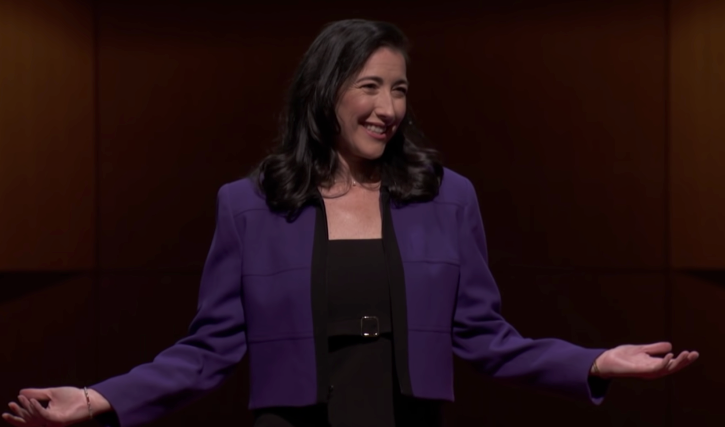
“How to Outsmart Your Own Unconscious Bias” by Valerie Alexander
In this TED Talk, Valerie Alexander begins with a brain exercise where she asks the audience to visualize scenarios and asks them who the people they pictured looked like. This pushes the audience to recognize the unconscious biases that we all have.
She draws from her experience as an attorney and CEO of a tech start up and shares how she consciously turns the unexpected into the expected and shares tips on how we can do the same.
1. Visualize situations before they happen as you go about your day. Whatever mental picture you get - change it and be open to different possibilities.
2. When you encounter the unexpected, have the courage to examine your behavior. Ask yourself, “Is this how I would handle this situation if this person looked like me or didn’t look like me?”
3. Make a conscious effort to expose yourself and others around you to things that are currently unexpected.
According to Alexander, “The biggest stumbling block to true equality is unexamined behavior.”
11/15/23 – Community and Implicit Bias
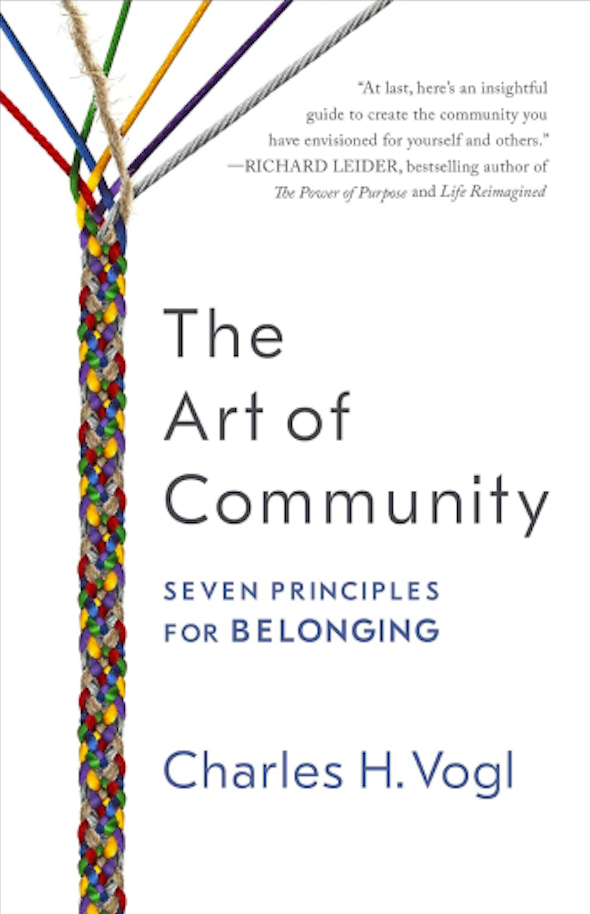
The Art of Community: Seven Principles for Belonging by Charles Vogl (Penn Libraries) (Amazon)
"The Art of Community" by Charles Vogl explores seven principles for fostering a strong sense of belonging within communities. Vogl emphasizes the importance of invitations in making people feel genuinely welcome and defines community as “mutual concern for one another.” He also highlights the impact of storytelling: "Stories are the most powerful way we humans learn. Every community, like every person, is full of stories. Sharing certain stories deepens a community’s connections."
To watch the author, Charles Vogl, talk about the book, please visit the link below. Here, Vogl shares how he and his now wife held dinner parties for friends while studying at Yale. It was not only a huge hit, but his invitations made others feel like they belonged and profoundly changed his friend Melo’s life.
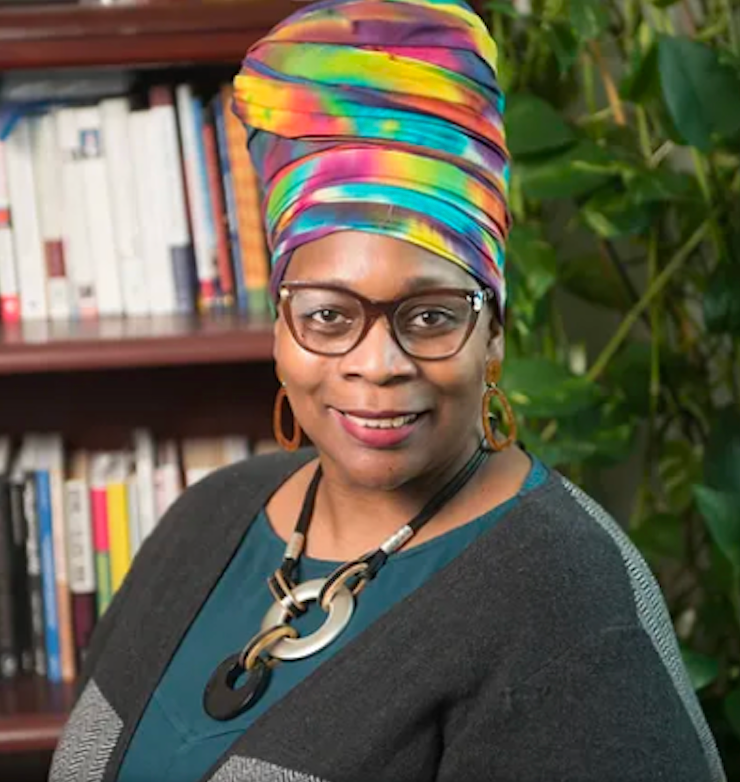
“Implicit Bias -- how it effects us and how we push through” by Melanie Funchess (TED Talk)
Melanie Funchess explains how we all have implicit biases and how we need to be extremely self aware to call ourselves out on those biases.
She speaks about this idea of “transformational activism” to create a world with equity and the four steps it entails.
1. Do your own personal work.
2. Make connections with people who do not look like you.
3. When you have privilege, use your privilege to create equity.
4. Intentionally and deliberately engage in non-biasing activities meaning put yourself into diverse groups to learn and share what you learn.
Funchess leaves the audience with the word “ubuntu,” a Nigerian Bantu word that means “I am who I am because of who we all are. And, we are who we are because of who I am...I see you, I see myself. When you look at yourself next time, see me.”
10/25/23 – Belonging and Inclusivity
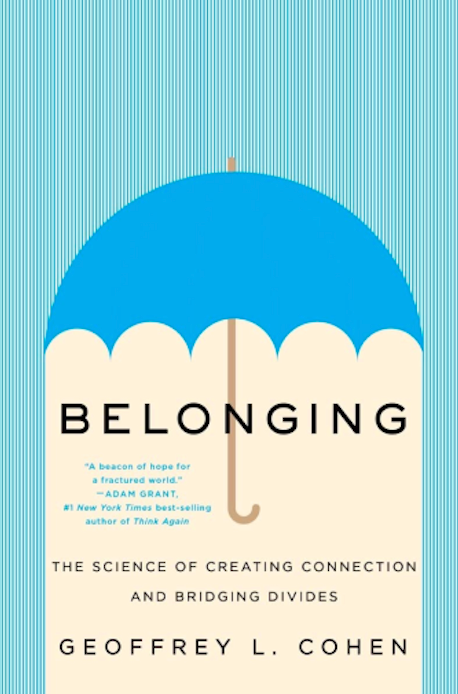
Belonging: The Science of Creating Connection and Bridging Divides by Geoffrey L. Cohen
What does it mean to belong? Cohen delves into the science behind creating this sense of belonging and explores research showing how individuals' beliefs about belonging can influence their behavior, academic performance, and relationships. Cohen discusses practical strategies for fostering belonging, particularly in educational settings. He emphasizes the importance of an inclusive and supportive environment and how a sense of belonging can bridge divides, mitigate stereotypes, and promote diversity and equity. This book highlights the psychological factors that influence belonging and offers actionable insights for building more inclusive communities and organizations.
To watch Geoffrey Cohen talk about the book, please visit the link below.
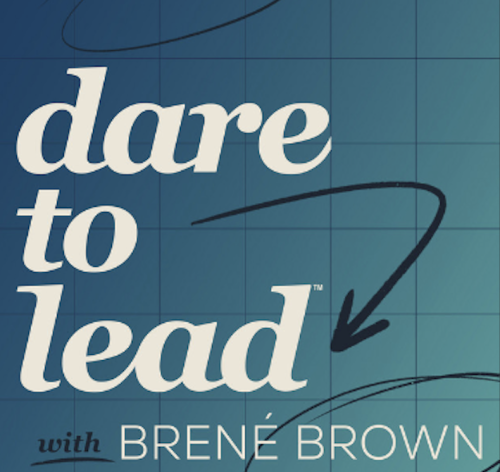
Dare to Lead with Brené Brown, “Brené with Aiko Bethea on Inclusivity at Work: The Heart of the Hard Conversations”
Brené Brown and Aiko Bethea engage in a candid conversation about inclusivity in the workplace. They delve into the complexities of fostering true inclusivity, moving beyond surface-level diversity efforts. The podcast highlights the importance of having uncomfortable, yet necessary, conversations to address systemic issues and create a more equitable work environment. Bethea shares her expertise on navigating these difficult discussions and provides valuable insights into building a workplace culture that genuinely values diversity and prioritizes belonging for all employees. They highlight the importance of transformational vs transactional leadership. It's a compelling exploration of the heart of inclusive workplaces that can apply to creating inclusive student groups as well.
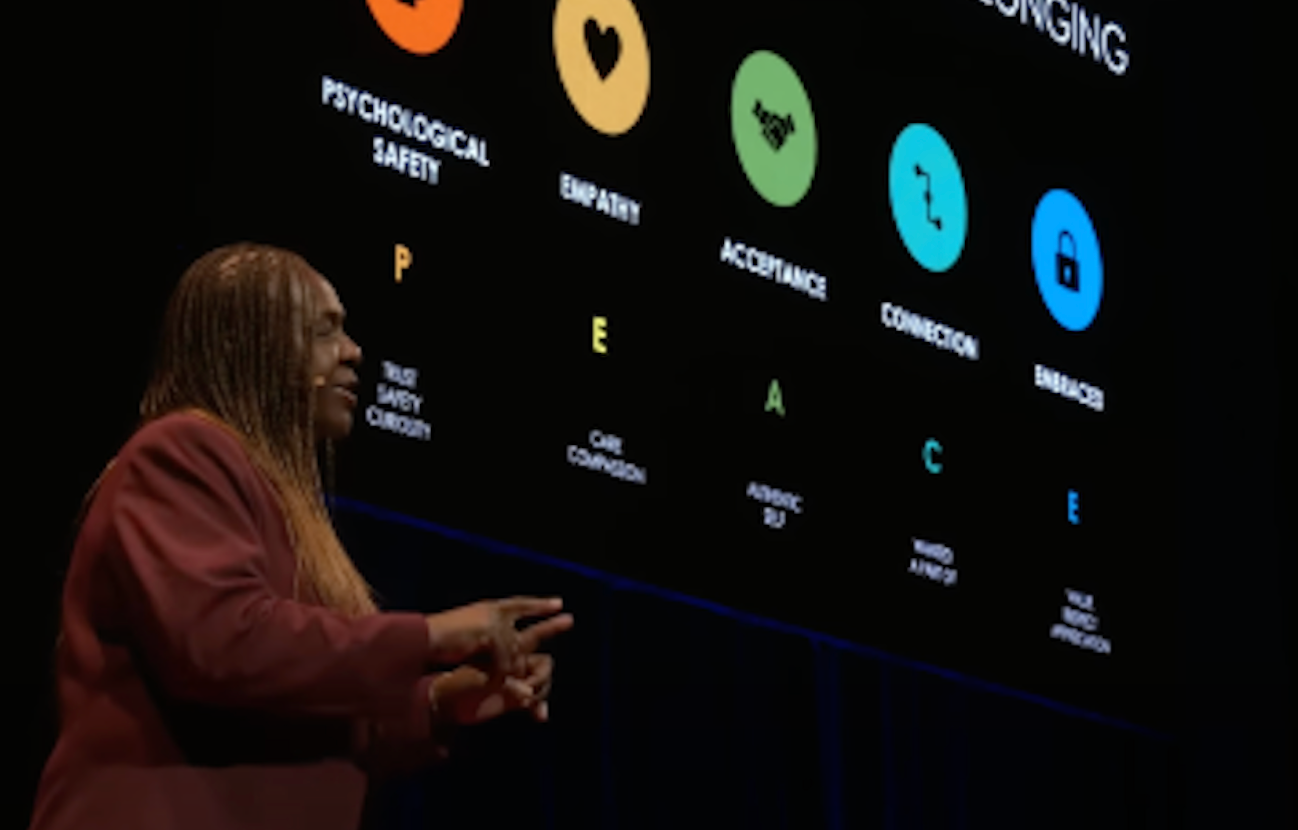
Belonging, A Critical Piece of Diversity, Equity & Inclusion by Carin Taylor (TED Talk)
Carin Taylor discusses the crucial role of belonging in the broader context of diversity, equity, and inclusion (DEI) efforts. Taylor shares the “Five Tenets of Belonging”: psychological safety, empathy, acceptance, connection, embraced (PEACE) and how these must be in place for people to feel like they belong in a space or organization. She also shares how she came to the conclusion that there is no single definition for belonging. Taylor shares insights from her own experiences and highlights how organizations can foster a sense of belonging by addressing systemic barriers and fostering connections. Her talk underscores the significance of recognizing and addressing the emotional and psychological aspects of DEI, making it a powerful addition to the conversation on building more inclusive workplaces and communities.
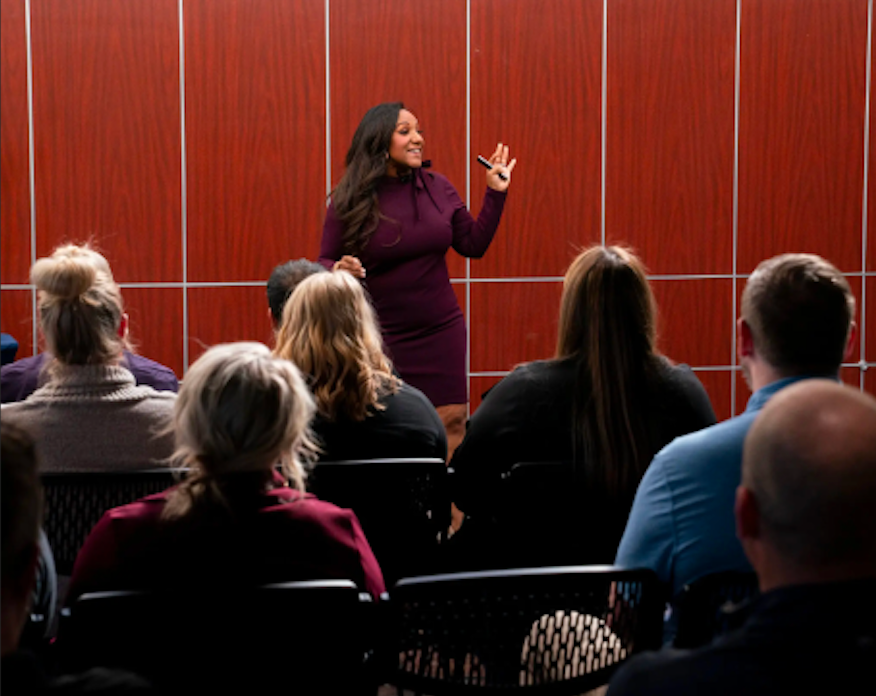
Why Some Companies Are Saying ‘Diversity and Belonging’ Instead of ‘Diversity and Inclusion’ by Jennifer Miller (New York Times).
The focus shifts from "diversity and inclusion" to "diversity and belonging." The article examines how this change in terminology reflects a deeper commitment to fostering inclusivity and equity within organizations. It explores how "belonging" highlights the importance of creating environments where all employees feel valued, respected, and empowered. By emphasizing belonging, companies aim to go beyond surface-level diversity efforts and truly integrate individuals from diverse backgrounds into the fabric of the organization. This shift underscores the significance of building cultures that promote genuine connections and a sense of community among employees.
